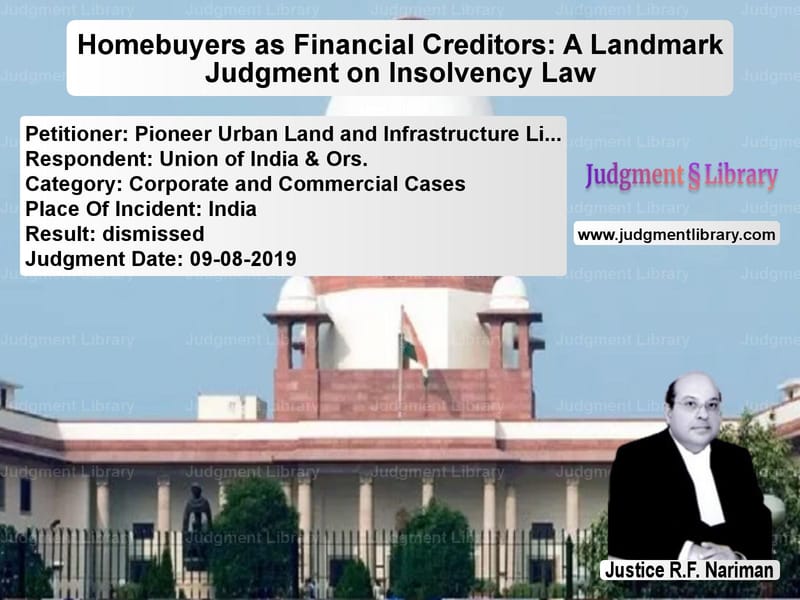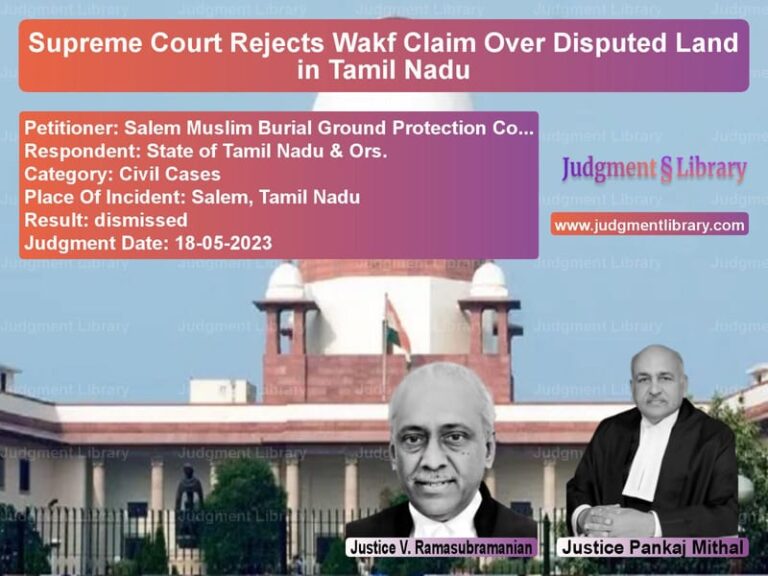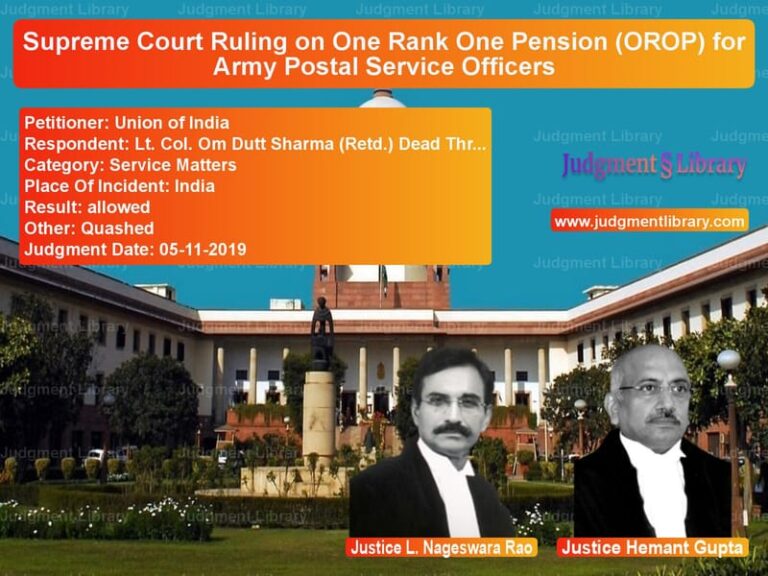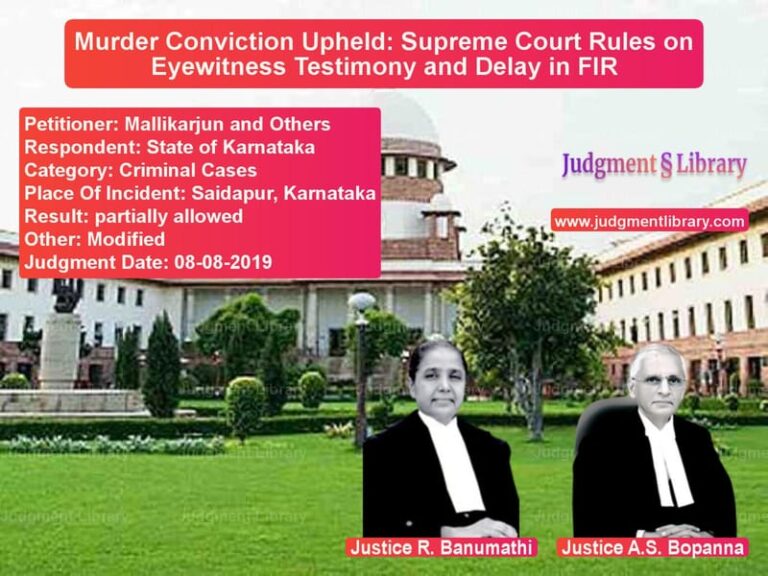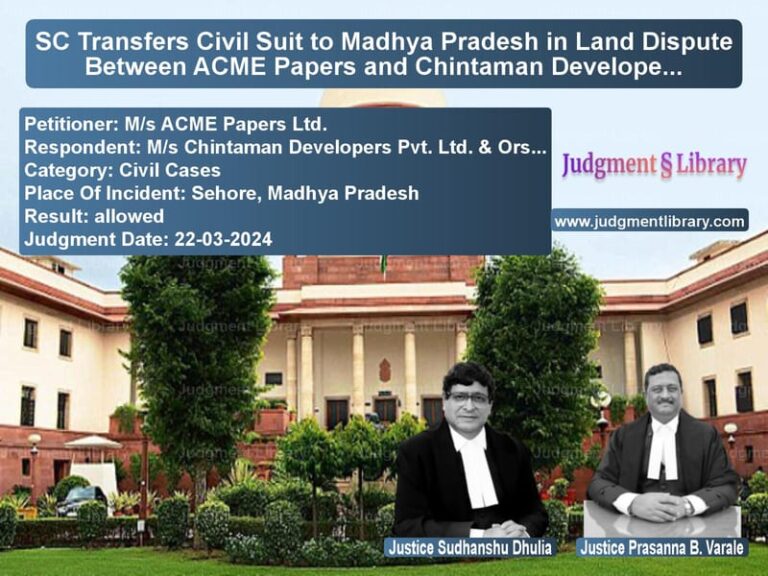Homebuyers as Financial Creditors: A Landmark Judgment on Insolvency Law
The case of Pioneer Urban Land and Infrastructure Limited & Anr. v. Union of India & Ors. brought forth a significant legal debate on whether homebuyers in real estate projects should be considered financial creditors under the Insolvency and Bankruptcy Code, 2016 (IBC). The Supreme Court was tasked with analyzing the amendments made to the IBC, which deemed homebuyers as financial creditors, thus allowing them to initiate insolvency proceedings against real estate developers. This judgment carries far-reaching consequences for the real estate sector and homebuyers alike.
The petitioners, primarily real estate developers, challenged the amendments, arguing that such classification was unconstitutional. On the other hand, the respondents, representing homebuyers and the government, defended the amendments, emphasizing the need for enhanced protection for homebuyers who have invested their hard-earned money into housing projects that have been delayed or abandoned.
Background of the Case
In 2018, amendments to the IBC were introduced to include homebuyers as financial creditors, giving them the right to initiate corporate insolvency resolution processes (CIRP) against real estate developers. This came in response to numerous cases where developers failed to deliver projects on time, leaving homebuyers in distress. The amendment allowed homebuyers to have a say in the Committee of Creditors (CoC), similar to banks and other financial institutions.
Petitioners’ Arguments
The petitioners, representing the real estate developers, raised the following arguments:
- Violation of Article 14: They contended that treating homebuyers as financial creditors was discriminatory as it equated them with banks and financial institutions, even though their nature of transactions was different.
- Impact on Real Estate Sector: Dr. Abhishek Manu Singhvi, appearing for the developers, argued that allowing homebuyers to initiate insolvency proceedings could lead to a flood of cases before the National Company Law Tribunal (NCLT), severely impacting the real estate industry.
- Alternative Remedies Exist: The developers pointed out that homebuyers already have remedies under the Real Estate (Regulation and Development) Act, 2016 (RERA) and consumer protection laws, making the IBC amendment redundant.
- Threat of Malicious Litigation: The petitioners argued that individual homebuyers, acting out of frustration, might misuse the insolvency process to force refunds rather than seek the completion of projects.
Respondents’ Arguments
The respondents, including the government and representatives of homebuyers, defended the amendments with the following key points:
- Financial Contribution by Homebuyers: It was argued that homebuyers contribute substantial sums towards real estate projects, making them equivalent to financial creditors who fund companies.
- Need for Protection: The government contended that homebuyers were left without effective remedies, as RERA’s enforcement mechanisms were weak and time-consuming.
- Legislative Intent: The amendment was made to correct the imbalance in power between homebuyers and developers, ensuring that buyers could participate in insolvency proceedings if developers failed to deliver projects.
- Supreme Court’s Role in Balancing Interests: The respondents emphasized that the judiciary should uphold the amendments as a means to protect thousands of affected homebuyers across India.
Key Observations by the Supreme Court
The Supreme Court, in its detailed judgment, upheld the constitutional validity of the amendments. The bench, led by Justice R.F. Nariman, made the following critical observations:
- Classification of Homebuyers as Financial Creditors: The Court noted that homebuyers invest in real estate projects in a manner similar to financial creditors lending money to companies. Thus, they deserve protection under the IBC.
- IBC vs. RERA: The Court clarified that RERA and IBC operate in different spheres and do not conflict with each other. While RERA regulates the real estate sector and ensures compliance, IBC provides a remedy when developers default.
- Role of Homebuyers in the CoC: The Court upheld the provision allowing homebuyers to be part of the Committee of Creditors, stating that their financial stakes in projects justify their inclusion.
- Protection Against Misuse: The Court recognized the risk of frivolous litigation by individual homebuyers but pointed out that IBC has built-in safeguards, such as Section 65, which prevents fraudulent or malicious proceedings.
Impact of the Judgment
This judgment has had a significant impact on the real estate sector and homebuyers:
- Enhanced Rights for Homebuyers: Homebuyers now have a legal route under IBC to recover their investments in stalled projects.
- Increased Accountability for Developers: Real estate companies are now under greater pressure to complete projects on time or face insolvency proceedings.
- Potential Challenges for the Industry: While the judgment empowers homebuyers, it also raises concerns that increased insolvency filings may disrupt the real estate sector.
Conclusion
The Supreme Court’s judgment in Pioneer Urban Land and Infrastructure Limited v. Union of India is a landmark decision that strengthens the rights of homebuyers while maintaining the integrity of the insolvency process. By classifying homebuyers as financial creditors, the ruling ensures that they have a voice in insolvency proceedings and can hold developers accountable for delays and defaults. At the same time, the judgment acknowledges the need for safeguards to prevent the misuse of insolvency laws.
With this decision, the real estate industry must adapt to greater transparency and adherence to timelines, while homebuyers have gained a powerful legal recourse in cases of project delays or abandonment. This judgment sets a precedent for consumer rights in large-scale financial transactions and ensures a more balanced approach in addressing disputes in the real estate sector.
Petitioner Name: Pioneer Urban Land and Infrastructure Limited & Anr..Respondent Name: Union of India & Ors..Judgment By: Justice R.F. Nariman.Place Of Incident: India.Judgment Date: 09-08-2019.
Don’t miss out on the full details! Download the complete judgment in PDF format below and gain valuable insights instantly!
Download Judgment: Pioneer Urban Land a vs Union of India & Ors Supreme Court of India Judgment Dated 09-08-2019.pdf
Direct Downlaod Judgment: Direct downlaod this Judgment
See all petitions in Company Law
See all petitions in Bankruptcy and Insolvency
See all petitions in Corporate Governance
See all petitions in unfair trade practices
See all petitions in Contract Disputes
See all petitions in Judgment by Rohinton Fali Nariman
See all petitions in dismissed
See all petitions in supreme court of India judgments August 2019
See all petitions in 2019 judgments
See all posts in Corporate and Commercial Cases Category
See all allowed petitions in Corporate and Commercial Cases Category
See all Dismissed petitions in Corporate and Commercial Cases Category
See all partially allowed petitions in Corporate and Commercial Cases Category

